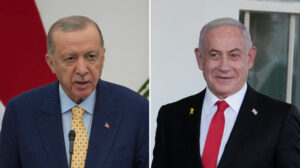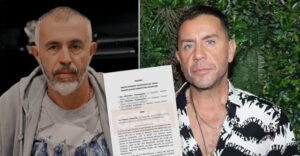Turkey’s escalating military presence in Syria and plans to establish bases and control strategic infrastructure have turned Damascus into a new confrontation between Ankara and Tel Aviv.
As the Economist reported in an analysis, for weeks, Turkish military officials have been traveling to air bases across Syria and were working on plans to equip at least some of them with air defense systems and armed drones.
Preparations for Turkey’s seizure of the T4 airbase near Palmyra were said to be underway.
In early April, the Israeli Air Force launched coordinated strikes against military bases inside Syria, including T4, signaling Israel’s determination not to allow Turkish infiltration.
The statements by Israel’s foreign and defense ministers, Gideon Sha’ar and Israel Katz, respectively, were telling: Syria is in danger of becoming a Turkish protectorate, and any cooperation by Damascus with forces hostile to Israel will have serious consequences.
At the heart of the conflict lies Turkish President Recep Tayyip Erdogan’s ambition to elevate Ankara as a regulator of developments in Syria, and to extend its influence through support for interim President Ahmed al-Saraa.
Sharaa, whom Israel rejects as a “jihadist of the al-Qaeda school”, has said his goal is to prevent Syria from becoming a base for foreign extremists.
Israel under Benjamin Netanyahu, however, fears it is a front to cover up plans to host Hamas and other radical groups.
The disagreement also reaches the realm of internal governance: Ankara and Saraa support a centralized presidential model, while Israel wants a federal Syria, with autonomy for minorities such as Kurds and Alawites. The recent massacre of hundreds of Alawites by armed groups loyal to Sharaa heightens concern about the future of minorities in the new Syria.
At the heart of the controversy, the Kurdish issue serves as a fuse. Ankara accuses Israel of strengthening the Kurdish forces (SDF), which it considers an offshoot of the PKK, and fears that Tel Aviv is attempting to create a pro-Israeli Kurdish enclave on Turkey’s southern border. Former Foreign Minister Saar has called the Kurds “natural allies of Israel,” which heightens Turkish suspicions of destabilizing cooperation.
Fear of a “Kurdish protectorate” prompted the start of secret talks between Ankara and jailed PKK leader Abdullah Öcalan, resulting in a temporary ceasefire being declared last March. The Israelis, on the other hand, believe that Ankara may use Syria as a “geopolitical battering ram” against the Jewish state.
Despite the hostility, a direct military conflict between the two countries is considered unlikely. Erdogan wants a restoration of relations with the US – in particular the reactivation of the F-35 deal – and a gradual normalization of relations with the EU through cooperation on Ukraine and regional stability. Any head-on conflict with Israel would mine these prospects.
At the same time, Turkey and Israel have a common interest: to prevent Iran from re-entering Syria. Common opposition to Iranian influence, as well as the need to stabilize the country, may serve as a rudimentary basis for cooperation.
As an Israeli official opined, “If Erdogan succeeds in stabilizing Syria and preventing the creation of a jihadist state, this may serve our interests as well.”
However, with the balance fragile, Syria is not only a rebuilding ground, but also a chessboard of geopolitical conflict, where Erdogan and Netanyahu are now playing as clear rivals.
Ask me anything
Explore related questions





